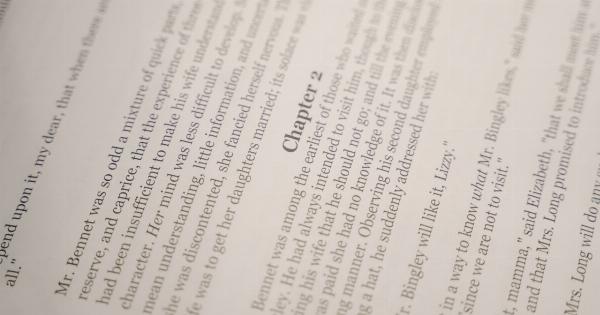Sherlock Holmes is one of the most beloved fictional characters of all time. Created by Sir Arthur Conan Doyle, he has captivated audiences since his first appearance in “A Study in Scarlet” in 1887.
Holmes is known for his incredible intellect, his exceptional attention to detail, and his remarkable observational abilities. But one thing that has often been speculated about is whether or not Sherlock Holmes is on the autism spectrum.
What is Autism?
Autism is a neurodevelopmental disorder that affects communication, social interaction, and behavior. It is a spectrum disorder, which means that it presents differently in each person who has it.
Some common symptoms of autism include difficulty with social cues and nonverbal communication, repetitive behaviors, and intense interests in specific topics. Autism is often diagnosed in childhood, but some individuals may not receive a diagnosis until adulthood.
Does Sherlock Holmes Exhibit Symptoms of Autism?
There are many traits of Sherlock Holmes that could be indicative of autism. For example, he often has difficulty with social interaction and has been described as aloof, rude, and inconsiderate.
He also has intense interests in specific topics, often to the exclusion of everything else. In addition, his attention to detail and ability to notice small details that others miss could be seen as a symptom of hyperfocus, which is often associated with autism.
However, it is important to note that diagnosing a fictional character is not an exact science.
Sherlock Holmes was created by Conan Doyle over a century ago, and it is impossible to know with certainty whether or not he was intended to be on the autism spectrum. Additionally, some of Holmes’ traits could be attributed to other factors, such as trauma or his upbringing.
What do the Experts Say?
Despite the fictional nature of Sherlock Holmes, experts have weighed in on whether or not he could be on the autism spectrum.
Some professionals have suggested that Holmes’ traits are consistent with high-functioning autism or Asperger’s syndrome. These include Tony Attwood, a clinical psychologist who specializes in Asperger’s syndrome, and Michael Fitzgerald, a professor of child and adolescent psychiatry who has written extensively on autism in literature.
However, other experts disagree, noting that Holmes exhibits many traits that are not consistent with autism, such as his exceptional memory and his ability to make deductions based on scarce evidence.
Conclusion
The question of whether or not Sherlock Holmes is on the autism spectrum is one that is unlikely to ever be definitively answered. While his traits do align with some of the symptoms of autism, there are many other factors to consider as well.
Ultimately, the most important thing is that Sherlock Holmes remains a beloved character, whose impact has been felt for over a century.































